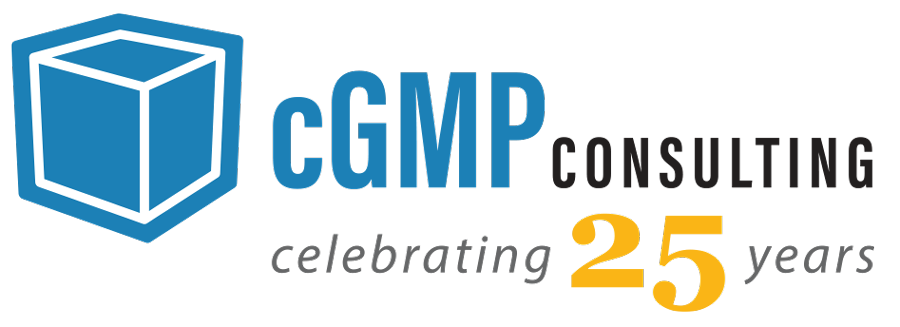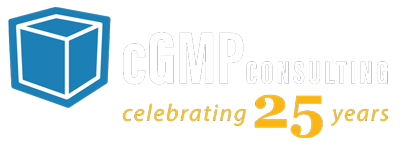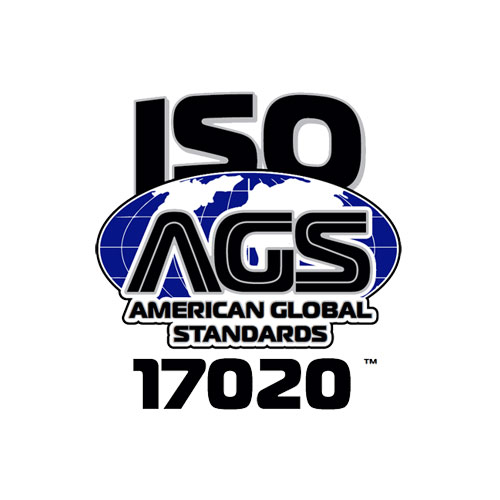FAQ
GxP is an abbreviation for “good practice” guidelines and regulations. The “x” variable in GxP covers a wide range of processes utilized in the development, manufacturing, and distribution of regulated products such as Good Manufacturing Practices (GMP), Good Clinical Practices (GCP), Good Laboratory Practices (GLP), Good Storage Practices (GSP), Good Documentation Practices (GDP), etc. Regulated industries, including food, pharma, medical devices, and cosmetics, are impacted by GxP.
Yes, cGMP Consulting is ISO/IEC 17020:2012 accredited, allowing us to certify your organization as GMP compliant through the auditing process if you meet the requirements. This attestation of compliance with GMP standards is valuable for commercial claims of GMP and is becoming more common and necessary in numerous industries with many retailers, suppliers, and customers. For more information, visit our GMP Certification page and take our readiness questionnaire to determine how close your organization is to becoming GMP Certified.
It’s essential to understand that while cGMP Consulting can certify compliance, the FDA or other regulatory bodies have the final authority on GMP compliance and do not recognize certifications for GMP.
The first and most important indicator that your organization is ready to become GMP certified is a clear understanding of applicable regulations and standards (GMPs, ISO, etc.) that your business must follow. This determination will then guide you toward the necessary elements that will make you GMP compliant.
Below is a general checklist of topics that need to be addressed in written, controlled policies and procedures to determine if you’re compliant and ready for certification. All these categories may or may not all apply, as it will depend on the CFR specific to your industry. However, this is a good guide to determine your degree of compliance. Having these procedures in use may indicate readiness for GMP certification. Also, consider our readiness questionnaire.
Quality Management System
- Quality Manual
- Quality Policy
- Good Documentation Practices
- Document Control
- Approved Suppliers
- Change Control
- Deviation Management
- Corrective Action
- Internal Audit
- Management Review
- Complaints and Recalls
Personnel
- Job Descriptions
- Responsibilities and Qualifications
- Training
- Hygiene and Work Habits
- Gowning
Facility Management
- Design and Construction
- Maintenance and Sanitation
- Visitor Policy
Equipment
- Design
- Cleaning
- Calibration
- Maintenance
Materials Management
- Receiving, Storage, Testing, and Approval
- Rejected and Returned Materials/Products
- Material Destruction
Production Management
- Written Procedures
- Calculation of Yield
- Batch Record Review and Disposition
- Defect Catalog
- Line Clearance and Rework
Packaging and Label Control
- Labeling Issuance
- Packaging and Labeling Operations
- Expiration Dating
Distribution Management
- Holding and Distributing Procedures
Laboratory Controls
- Sampling and Testing
- Out of Specification (OOS) Management
Records and Reports
- Equipment Logs
- Master Manufacturing Records and Batch Records
- Specifications
- Incoming Components, Materials, In-process, and Finished Products
- HACCP (Food, including Dietary Supplements)
cGMP Consulting Inc. utilizes risk management principles followed by the FDA’s ICHQ9 guidelines for assessing the design of facilities during the Research and Development phase. We help our clients define process materials for production control under good clinical manufacturing practices. Additionally, cGMP Consulting helps in developing the specifications for radiopharmaceutical products and identifying the criticality of the specifications.
We have assisted with facility design to transition from an R&D facility to one with cGMP production and quality systems. Previous projects included isotope production facilities that were produced for clinical supplies.
cGMP Consulting collaborated with companies and research facilities on projects which included:
- Isotope reactor use at the production facility for production control and assessing the design requirements.
- Defining the processes and material needed during production control.
- Radiopharmaceuticals basic quality system development in relation to specifications, process, and requirements for Phase I/II Clinical trials.









